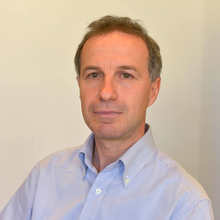Tell us about yourself: where you come from, what you teach at Ca' Foscari, what are your interests and research areas
I work on inequalities, migration, racism and labour transformations. My research activity lies within the social sciences, specifically sociology. Here at Ca' Foscari I teach "Theory and analysis of inequalities", "Sociology of migration", "Racism and interculturalism", "Sociological theories". I participated in many international and national projects on these topics (e.g., for DG Research, DG Employment and DG Home of the European Commission; for the International Organisation for Migrations, the European Monitoring Centre on Racism and Xenophobia, the Fundamental Rights Agency, the Joseph Rowntree Foundation, the Ministry of Health). For some years I have been involved in research projects on posted work in Europe, an extremely interesting phenomenon, little known to the general public, which if well studied is a sign of some important social trends.
What has given you the greatest satisfaction in your career?
It is hard to say, because so far there have been many. The biggest one is certainly the Master's degree in Immigration, established in 1999, now in its twentieth edition. An important professional experience, a wonderful human experience, but also a success story: the first Master's degree on Immigration in Italy, which has had a thousand students (now working in immigration in several Italian regions) and many excellent lecturers from all over the world.
The most unexpected accomplishment was being asked to join the editorial board of Palgrave's prestigious Migration, Diasporas and Citizenship series, edited by Olga Jubany and Saskia Sassen.
The most recent achievements were the publication of a book on Arabic Islamophobia in Arab countries and the interview given a few days ago to the French newspaper Libération on environmental racism.
Last but not least, there is the satisfaction and affection of the students over all these years.
The area you have always wanted to be involved in but have not yet had the opportunity to explore?
Good question. There are so many things that I haven't been able to explore yet because of my busy schedule. However, one is the relation between racism and health, especially the impact of racism on health inequalities, namely racial health inequalities. Another is the study of the globalisation process of administrative detention, a special observatory that exposes several contemporary trends including a certain transformation of the state into a society of structural crisis. But my secret dream, so to speak, is studying the intensification of work; not so much the extension of working hours (which is, however, closely related and part of the issue), but the intensification of the pace of work, the overload of working time, the acceleration of work intensity, and its multiple social consequences.
What is the aspect of your research you are most passionate about?
There are several thrilling aspects. Firstly, as with all research and study in general, as you advance in knowledge you are constantly opening up new spaces to learn about: this sometimes causes a sense of bewilderment and helplessness, but at the same time it is fascinating, stimulating, enriching; and that initial sense of bewilderment is replaced by a sense of fulfilment produced by the acquisition of new knowledge.
Secondly, I work on the major social issues of our time, and this is very exciting, even if it is sometimes a little 'tiring'. Thirdly, although they all are, the areas of my research are purely global, they are not focused on local settings or microscopic objects; this outlook on the world, which needs a look at the whole and which involves connections with the world, is exciting for me.
Can you offer any advice to researchers in the early stages of their career?
I would suggest three things to young people approaching research: focus only on the level and quality of the content of your studies and research; have a lot of patience and self-confidence because research is often marked by precariousness and sacrifices, but sooner or later these are rewarded with great satisfaction; when it comes to social sciences, bear in mind that - as a single science made up of various social sciences that scientifically study society - social science is critical social science, otherwise it is not social science.

